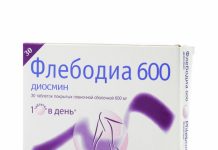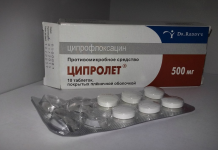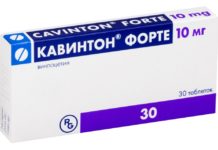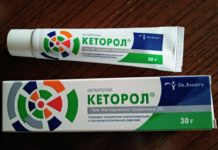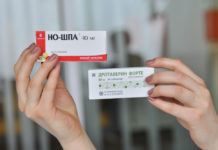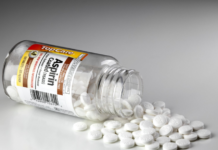Vaginal candidiasis (thrush) is a fungal disease that affects the genital mucosa. Causing a symptom complex quite unpleasant for the patient, fungal pathogens, meanwhile, are easily amenable to therapy with antifungal agents. For the most part, thrush tablets are inexpensive and effective, distributed over the counter, and quickly get rid of the signs of the disease.
Material Content:
List of the most effective thrush tablets
Means for the treatment of candidiasis differ in the mechanism of action and chemical structure. The effect may be mycocidal and mycostatic. Mycocidal preparations completely destroy the fungus, mycostatic ones suspend its life processes, including reproduction. At the end of the life cycle of the already existing pathogen, the latter dies without multiplying. The infection ceases to exist.
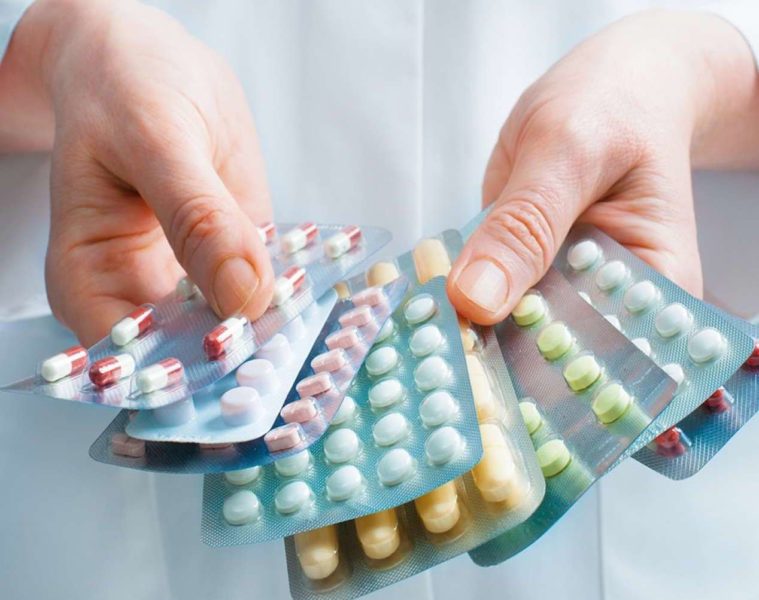
According to the chemical structure, antifungal drugs are:
- polyene;
- imidazole group;
- triazole group;
- combined.
Each of these groups has its own characteristics of use, contraindications and side effects. The choice of medicine is carried out by a doctor.
Polyene antibiotics
Polyene antibiotics are long-standing representatives of this pharmacological group. The time of their creation is the forties of the 20th century, when the antimycotic “nystatin” was isolated. Other representatives of the polyene category are: levorin, amphotericin B.Antimycotics are of natural origin, are produced by bacterial microflora, bind to ergosterol of the cell membrane of the fungus, which disrupts its vital processes and leads to the loss of important macromolecules.
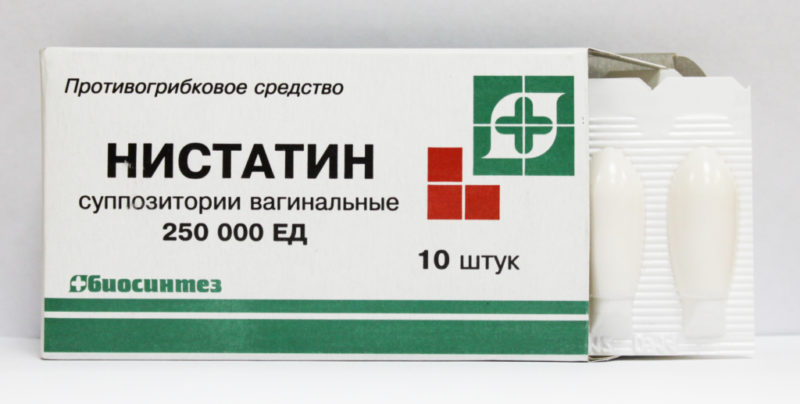
Drugs are prescribed as follows:
- Nystatin - 500 thousand units are assigned 4 times a day for 14 days. It can be used in the form of vaginal suppositories 2 times a day. The duration of the course is 10-15 days.
- Levorin - with vaginal candidiasis, the drug is used to wet gauze swabs. In this case, a tablet of levorin is crushed, stirred in water in a ratio of 1: 500 and a swab is moistened. After that, it is used to plug the vagina. The procedure is carried out 2 times a day, 20 days.
- Amphotericin B - it is applied parenterally, drip. It is indicated for thrush, developed against the background of immunodeficiency states. The infusion is carried out twice a week, for a month. The dose is selected based on 250 units / kg of weight.
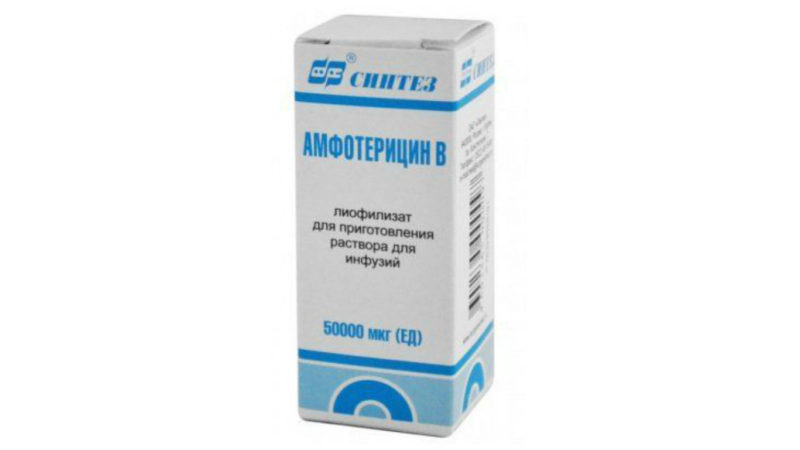
A common side effect of all polyene antifungal drugs is dyspepsia (nausea, abdominal pain, vomiting, diarrhea). When used locally, a burning sensation is noted. Antimycotics-polyenes are contraindicated in peptic ulcer of the stomach, intestines, acute gastrointestinal tract inflammation, liver pathology, pregnancy, and individual intolerance.
Triazole antibiotics
Modern and effective preparations for thrush, specifically inhibiting the formation of sterols in the fungus, can be applied topically, as well as in tablet or injection form. They are widely used in healthcare facilities for the treatment of fungal infections, which are a side effect of antibiotic therapy. Triazoles include itraconazole, voriconazole, fluconazole.
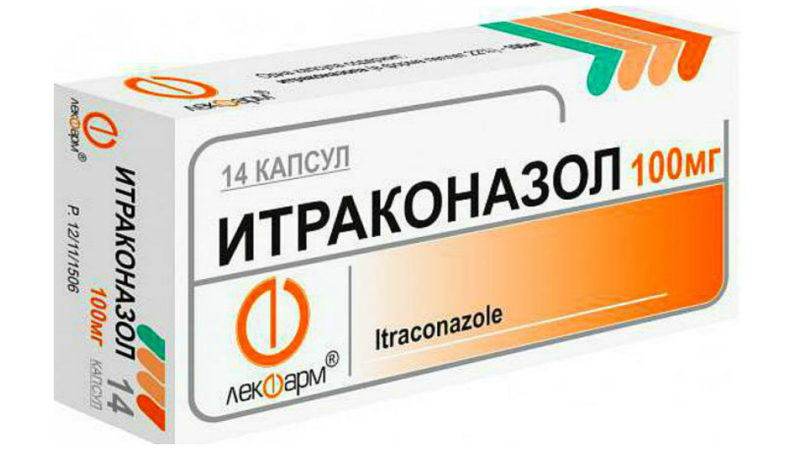
The following medication regimens are generally accepted:
- Itraconazole — 0.2 grams (2 capsules) once a day. The duration of the course is 10 days.
- Voriconazole - 400 mg, 2 doses per day on the first day of therapy, then - 200 mg 2 r / day. The course is until complete recovery. The average duration is 5-7 days.
- Fluconazole is an effective remedy for thrush, which eliminates the symptoms of the disease in 1 dose. With candidiasis of the vaginal mucosa, 150 mg is prescribed once. If a longer course of treatment is needed, fluconazole is used 200 mg 2 times a day, 10 days.
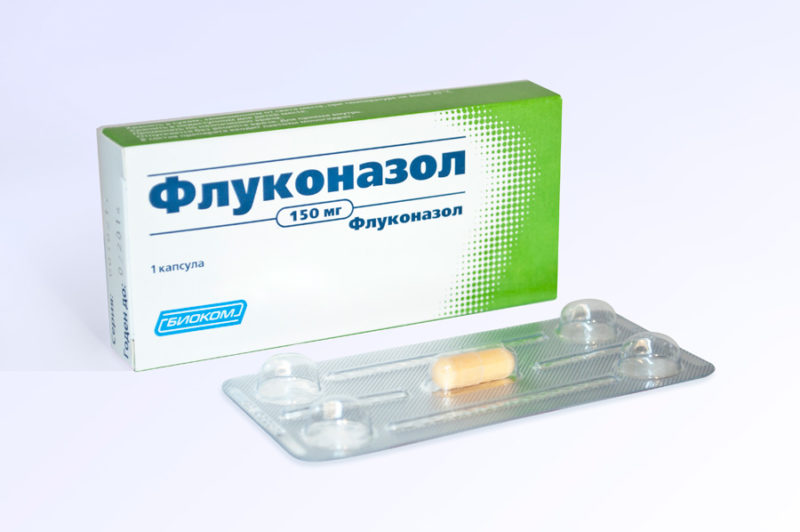
A side effect of triazoles is a skin rash, flatulence, diarrhea, fatigue, bleeding, convulsions. The drugs of this group are contraindicated in the first trimester of pregnancy, with severe renal and hepatic insufficiency, hormonal disorders, and individual intolerance.
Read also: thrush: treatment quickly and effectively
Note: in some cases, the use of drugs is not refused even with poor patient tolerance and the presence of contraindications. This is only possible in a hospital, in the treatment of severe fungal infections. Thrush is not included in their number, therefore, recommendations for the use of antifungal agents should be strictly observed.
Imidazole antibiotics
The mechanism of action of imidazoles is practically no different from that of triazoles. The active substance disrupts the synthesis of enzymes involved in the construction of the cell wall of parasitic fungi. In high doses, imidazole derivatives exhibit fungicidal activity, in small doses - static. Imidazoles include clotrimazole, miconazole, ketoconazole.
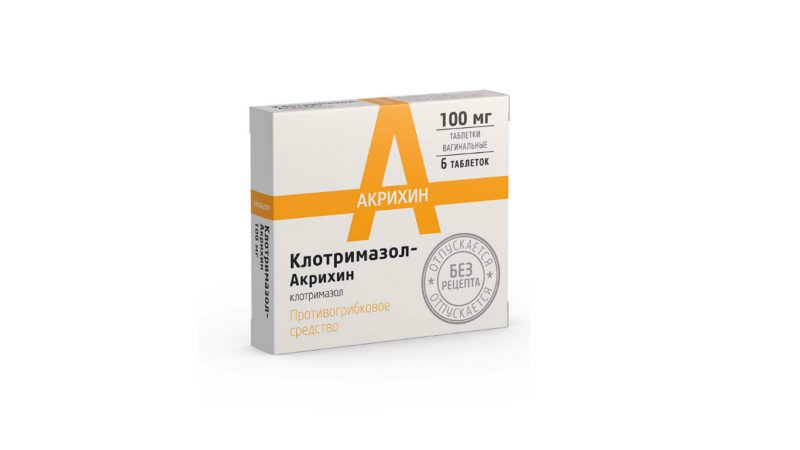
The dosages of these drugs are as follows:
- Clotrimazole - for the treatment of vaginal candidiasis, a tablet of the drug is administered into the vagina at night. The external genitalia is treated with 1% cream “Clotrimazole”. The course is until the symptoms of the disease completely disappear.
- Miconazole - 1 tablet 4 r / day. The course is 2 weeks.
- Ketoconazole - 2 tablets 1 time per day for 2 weeks. Then another 2 weeks, 1 tablet per day.
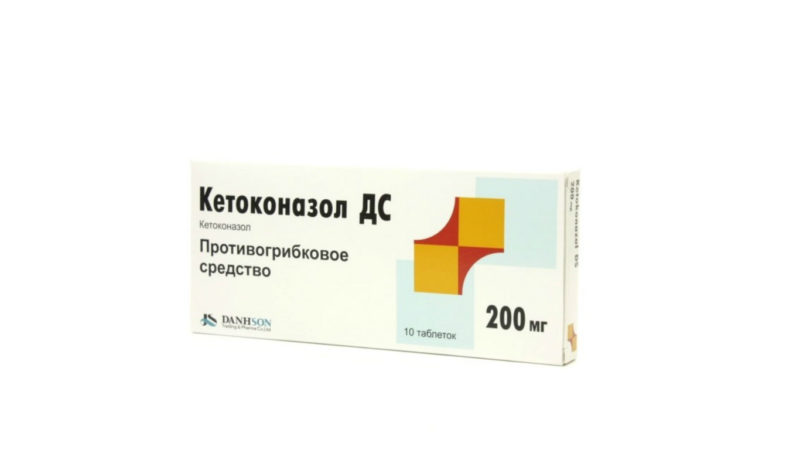
During imidazole therapy, a change in the blood picture, nausea, diarrhea, headaches, irritability and fatigue are possible. Contraindication is pregnancy, lactation, severe pathology of the liver and kidneys. A relative contraindication is a violation of the pituitary gland.
Combination drugs
Currently, for the treatment of thrush almost always use combined means, which include not only antimycotics, but also other active substances. As a rule, such drugs combine the properties of an antimycotic, antibiotic, anti-inflammatory and regenerative component.
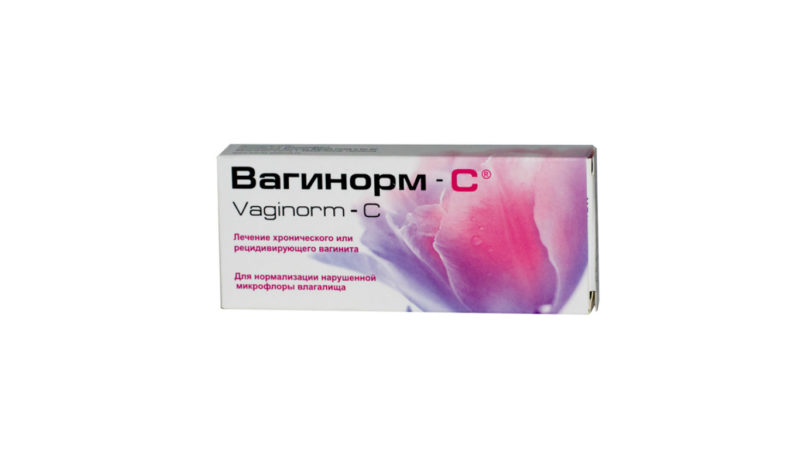
Among the popular combined treatments for thrush include:
- Vaginorm C is a drug that changes the acid-base environment of the vagina and creates unsuitable conditions for the fungus. In addition, vaginorm C accelerates the regeneration of the mucous membrane, relieves inflammation, and has the properties of an antioxidant and antiplatelet agent. It is administered intravaginally, 1 tablet at night. The course of therapy is 6 days.
- Gynoflor is a combined drug that combines a complex of lactic acid bacteria and hormone-like substances. It contributes to the normalization of microflora on the mucosa, thereby making the conditions unsuitable for candida to live. The course of treatment is 7 days. The candle is administered once, at night.
- Terzhinan - a combined, antifungal agent. It contains an antibiotic, antimycotic and hormonal component. Available in the form of vaginal tablets, which should be administered one at a time, in a course of 10 days.
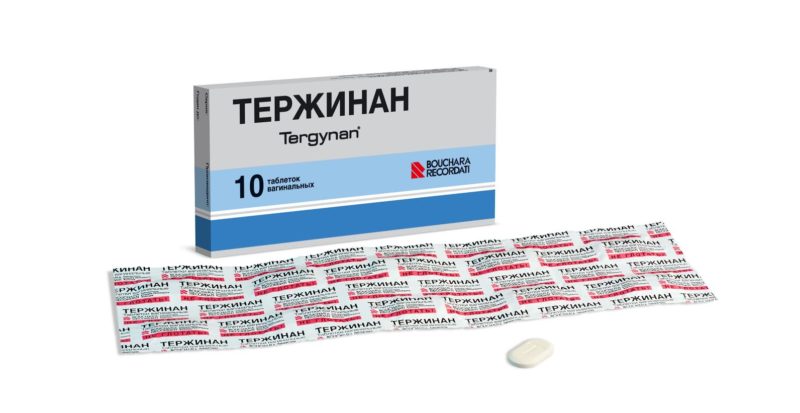
Combined treatment of candidiasis is preferred, as it allows not only to destroy the fungus, but also to eliminate the cause of its appearance.
Top 5 most effective and inexpensive drugs for thrush
Despite the presence of widely publicized and expensive treatments for candidiasis, you can get rid of the disease without significant financial investments.
The list of inexpensive and effective medicines includes:
- Fluconazole is the gold standard in the treatment of vaginal candidiasis. According to various sources, its cost varies from 30 to 200 rubles. Despite the low price, the antimycotic is highly effective and often allows you to get rid of thrush in 1 dose.
- Mikomax is another trade name for fluconazole. The drug is available in capsules, which makes it more convenient to use. The cost of 1 capsule of mycomax with a dosage of 150 mg (a full course of treatment for thrush) is 200 rubles.
- Livarol - suppositories based on ketoconazole. Well suited for the treatment of mixed infections. The cost of a blister of 5 units of livarol is approximately equal to 500 rubles.
- Nystatin in suppositories is an old and tested drug, described in detail above. The cost of packing “candles” on its basis varies from 50 to 200 rubles.
- Flucostat - the active substance is fluconazole. Available in capsules. The average cost of 1 capsule is kept within two hundred rubles.
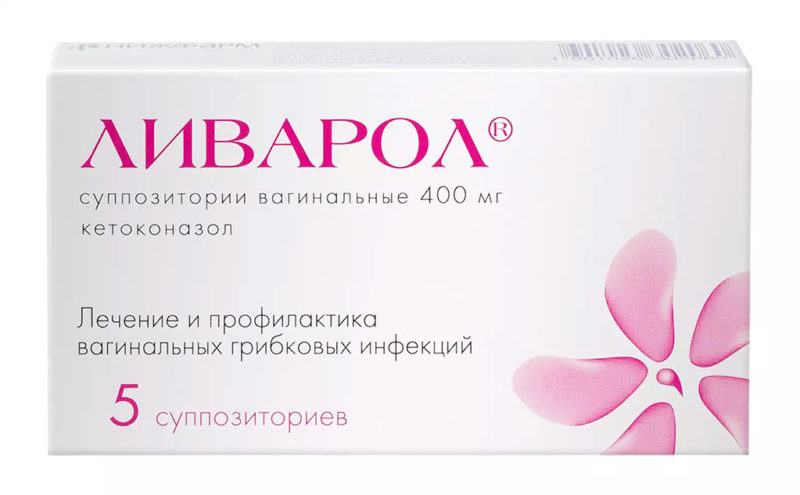
The drugs listed in the above list are considered reference in the treatment of candidiasis. However, in some cases, fungi are resistant to popular antimycotics. Alternative medicine comes to the aid of patients with drug-resistant fungus.
Alternative to medical treatment - folk remedies
Folk remedies for thrush are used in case of resistance of the fungal flora to medicines, as well as an additional treatment method. The possibility of applying this or that technique should be evaluated by a gynecologist.
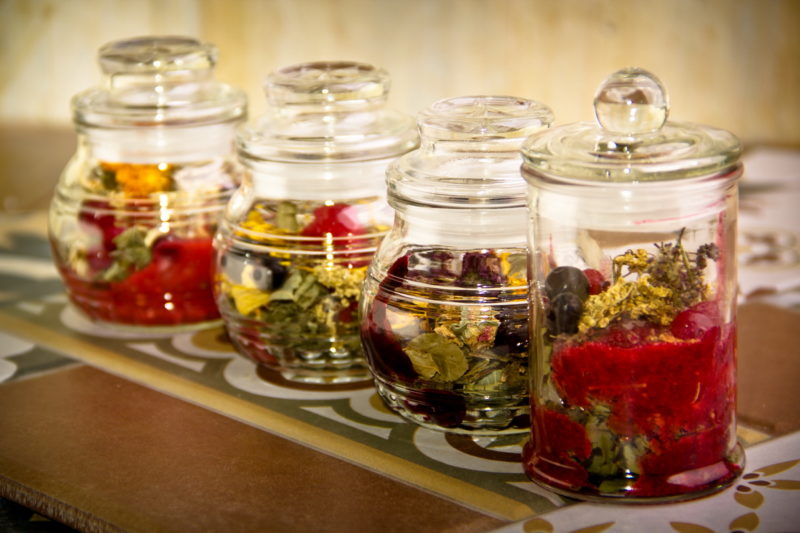
The most commonly used folk recipes include:
- A decoction of herbs - chamomile, yarrow, sage and calendula should be crushed to a powder state. To prepare a decoction, 1 teaspoon of each herb in crushed form is mixed with each other, and then pour 0.5 liters of boiling water. The resulting mixture is boiled for 10 minutes, cooled and filtered.After this, the broth is used to irrigate the walls of the vagina with the help of a baby syringe. The procedure is carried out 1-2 times a day until the symptoms of the disease disappear completely.
- Soda-iodine washings - to prepare a working solution, you need to boil a liter of drinking water. 2 tablespoons of salt and half the amount of baking soda are added to boiling water. The solution is mixed and its temperature is reduced to 40 ° C. Then, 10 drops of iodine are added to it, after which the mixture is considered ready. Rinse the affected area with fungi 2 times a day for 5 days.
- Oregano oil - 2 drops of oregano essential oil are added to 50 ml of olive oil and mixed thoroughly. The resulting mixture is applied to a sanitary swab or gauze tourniquet, and then injected into the vagina. The duration of the application is 8-10 hours (night). The multiplicity of the procedure is 1 time per day, the course is 8-10 days.
After applying solutions from the arsenal of traditional medicine in the treated areas, itching, hyperemia, and swelling may occur. This is a direct contraindication for continued therapy.
Note: local reactions of intolerance sometimes occur when using traditional drugs. In such situations, the medicine is also canceled.
Thrush is a disease that is relatively easy to treat by both traditional and folk remedies. Millions of people successfully cope with this pathology, without experiencing significant inconvenience. However, one should not think that the simplicity of therapy relieves the patient from the need to visit a doctor. Illiterate use of drugs can negatively affect your health. Therefore, the basis of any treatment should be the advice of a competent specialist.


